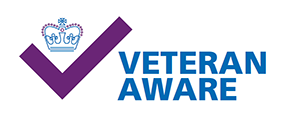Our Services A - Z - Ward 5D - Stroke Rehabilitation
About the service
If there is a need to stay in hospital to continue the acute phase and start rehabilitation, patients will transfer to 5D Acute Stroke Unit, which is a 25 bed Acute Stroke, Rehabilitation ward.
Ward 5D has 25 in-patient beds and also a specialist gym area for rehabilitation and group therapy. The main aim of ward 5D is to provide specialist rehabilitation for patients with a stroke, this is delivered by our multi-disciplinary team of Doctors, Nurses and therapists along with invaluable support of the National Stroke Association.
On admission to ward 5D patients are allocated a named Nurse who will lead a team of trained and untrained nurses to deliver your nursing care and coordinate your care with the multidisciplinary team throughout your rehabilitation.
Our stroke service is delivered by a team of experts, which we are very proud of. The care we deliver is based on the Royal College of Physicians National Clinical Guidelines for Stroke 2016 (www.strokeaudit.org.uk) the NHS 5 year plan 2020 (www.england.nhs.uk) and the National Institute for Health and Care Excellence guidelines 2019 (NICE) www.nice.org.uk
There is also a requirement for all stroke units to take part in monitoring the care we deliver and benchmarking ourselves against other stroke units nationally. This is done by providing data to the Sentinel Stroke National Audit Programme (SSNAP) who report performance; you can access our stroke unit performance at www.strokeaudit.org.uk and selecting the St Helens & Knowsley Trust site.
- What does Rehabilitation Mean?
As a multi-disciplinary team, our aim is to try and rehabilitate patients who have had a stroke to their previous functional level. It is very much a team approach with the patient at the centre.
Very soon after transfer to 5D, patients are reassessed by a team of Physiotherapists (PT), Occupational Therapists (OT), Speech and Language Therapists (SLT), Orthoptist and where appropriate Dieticians and Clinical Psychologists.
The team will conduct an initial assessment to enable them to develop a therapy programme for our patient’s exact needs. They will speak with relatives and carers to check the patient’s home situation to find any problems that need to be addressed prior to discharge.
As soon as the patient’s condition allows, therapy will start. Early sitting balance and mobilisation are an important part of stroke recovery. Therapists will work to improve the patient’s functional level and speech.
- Stroke Research
Research is a core function of the NHS. We need research and innovation to improve health and wellbeing now and in the future
The Stroke Unit at St Helens and Knowsley Teaching Hospitals NHS Trust (STHK) has a strong commitment to supporting research. The aim is to improve future treatment for all stroke patients.
Research is a way of learning new information; it is important in helping us to make better decisions to improve treatments and services...
Clinical trials show whether new treatments are safe, what their side effects are and whether they’re better than what we currently use. By participating in research you may feel as though you are taking a more active role in your healthcare. You will also be helping others, and possibly yourself, by helping to identify more effective treatments.
To find out more about research and whether any studies may be right for you please speak to your Consultant or Nurse, alternatively the team may contact you and offer you the choice to participate in a research trial if appropriate. You do have the right to decline, and this will not affect the care that you receive.
- Who does what?
The Stroke Therapy team are based on wards 5C and 5D at Whiston Hospital and provide a therapy programme to enable patients to increase their independence.
Our ward based Therapy team includes Physiotherapists, Occupational Therapist, Speech and Language Therapists and Therapy Assistants.
Physiotherapist (PT) Physiotherapists play an important part along the whole stroke pathway and aim to help you reach their full physical potential and functional ability to help independence.
Occupational Therapist (OT) Occupational Therapists are involved along the whole stroke pathway. They provide practical support to help recovery and overcome any barriers that prevent patients from doing activities that matter to them.
Therapy Assistants (TA) Our team of Therapy Assistants work closely with the Physiotherapists and Occupational Therapists and help with the Therapy Treatment plan.
On the stroke unit, the Physiotherapist and Occupational Therapist will complete various assessments such as:
- Physical assessment:
- Cognitive assessment:
- Functional assessments such as washing and dressing, kitchen tasks and going up/down stairs
- Assessment of the patient’s home to see if there is need for any equipment following discharge.
From the initial assessments the Therapists will work together with our patients to set rehabilitation goals that are focused on the patient’s needs.
Therapy treatment sessions are delivered as either individual or group treatment sessions depending on individual needs and goals.
Speech and Language Therapist (SLT) Speech and Language Therapists assess and support people who may have difficulty with:
- Understanding spoken words
- Using the right words and sentences
- Speech
- Using voice
- Reading and/or spelling
The Speech and Language Therapist will assess the patient’s ability in areas of conversation using simple tasks and activities and will work closely with patients to determine problems eating, drinking and swallowing after Stroke. Swallowing problems can increase the risk of developing a chest infection or weight loss.
This information will be used to find out how the stroke has affected the brain.
Dietician - The ward has its own Dietitian who specialises caring for patients following a stroke.
- Meet the nutritional requirements to prevent or minimise the patients weight loss
- Provide advice on different textured food of fortification
- Calculate the patients nutrition and hydration needs and prescribe liquid nutrition (food through a tube) if the patient is unable to eat or drink
- Changing from other nutrition (such as food given through a tube) to oral diet
- Monitoring your weight, blood tests and how this effects managing diet
- Provides advice on Diabetes and diet management
- Refers to community teams and on-going nutritional monitoring
Clinical Psychology - Stroke can impact you in many ways. It can impact upon your emotional well-being, and also impact on behaviour and ability to control emotions. The psychological impact of Stroke will be different for each individual.
The Clinical Psychologist’s role is to support the patient and everyone involved in the care to manage the psychological and emotional impact of Stroke. The Clinical Psychology Service will support the patient whilst you are in hospital. It also supports patients and carers after discharge from hospital through the outpatient Clinical Psychology Service.
Orthoptist - The ward has its own dedicated Orthoptist and also delivers specialist stroke orthoptist clinics on 5D ward.
The Orthoptist is someone who specializes in eyes and eyesight. They will check the vision and eye movements. They will help to manage any visual symptoms that patients have following a stroke, such as:
- double vision
- reduced vision
- problems with eye movements
The Orthoptist will work with you to improve your symptoms whilst you are in hospital. If required, they will arrange for ongoing care after you go home. They can also refer you to community services that support people with visual disturbance if required. They will also advise about the effects of vision on driving.
If patients had eye problems prior to their stroke it is important that glasses or eye medications are brought into hospital where possible. This will enable your treatment can continue whilst in hospital.
Pharmacist - The ward Pharmacist will review all your medications and current condition. They may make suggestions to your change your medications depending on the patient’s needs.
Family - Patients and their family/ carer’s will be actively encouraged to participate in therapy. Members of the Multidisciplinary team will speak with family regarding the patient’s progress and on-going treatment plan.
St Helens and Knowsley Teaching Hospitals supports ‘John’s Campaign’. If a member of your family is your carer, we want your carer to have the right to care for you on our ward if they so wish. We understand that this may not be possible for all carers.
- Team
Consultants – Dr F Elnagi and Dr Ganjam
Directorate Manager – Janet Sumner
Matron – Susan Noon
Ward Manager – Joanne Brown
Clinical Lead Physiotherapist - Sarah Cooper
Occupational Therapist Team Lead – Emma Griffiths
Clinical Lead Occupational Therapist - Nicky Smith
Advanced Physiotherapist - Joanna Smyth
Speech and Language Therapy Clinical Lead - Katherine Thorpe
Orthoptist – Martina Liptrot
Assistant Discharge Coordinator - Gemma Fagan
- Location and Contact details
Location and Contact details
The stroke unit is located on the 5th floor on the main Whiston Hospital site.
To contact 5D
Reception – 0151 430 1708 (manned am only)
Nurse Base - 0151 430 1240
- Visiting
To access visiting times for wards across our hospitals, please click here for more information.
Please note, visiting can be restricted or suspended with immediate effect if there are any safety concerns due to a spread of infection on our wards or in our communities.
To confirm that the ward you are planning to visit is currently open, please call our main number tel: 0151 426 1600
- Additional Information
The stroke service also provides 5 day week Transient Ischemic Attack (TIA) clinic, this is located on ward 5D, Acute stroke and Rehabilitation unit.
Referral into this service is by the patients GP or for patients who has presented to the Emergency Department with symptoms of a TIA.
If you are referred into this service you will be contacted by Julie Bate in the first instance, our TIA coordinator. Julie will make arrangements for you to attend the clinic. You will be seen by one of our Stroke Consultants who will assess you and request investigations as required. If necessary you will be referred and seen by a member of the stroke Multi-disciplinary Team (MDT).
All patients who have been discharged from the stroke unit with a diagnosis of stroke will be sent an appointment for an out-patient appointment to see a stroke Consultant within 12 weeks of your stroke diagnosis. You will be offered this appointment as either a face to face or virtual (telehealth or telephone) appointment. This will be discussed with you by your Consultant prior to your discharge.
You will also be contacted to attend an appointment at 6 months following your diagnosis of stroke; again this may be via a face to face or virtual clinic. This appointment will be with one of our Stroke Nurse Specialists who will undertake a full assessment of your condition following your stroke and give you opportunity to ask any questions.
Page last updated on 07th May 2024






